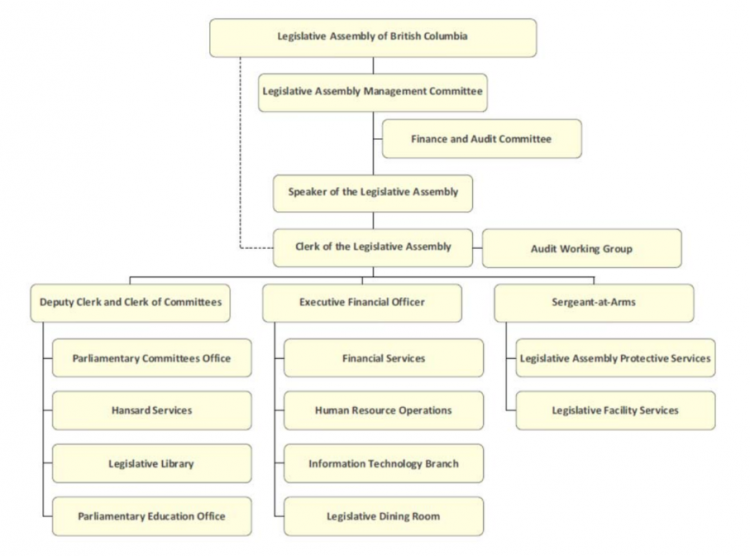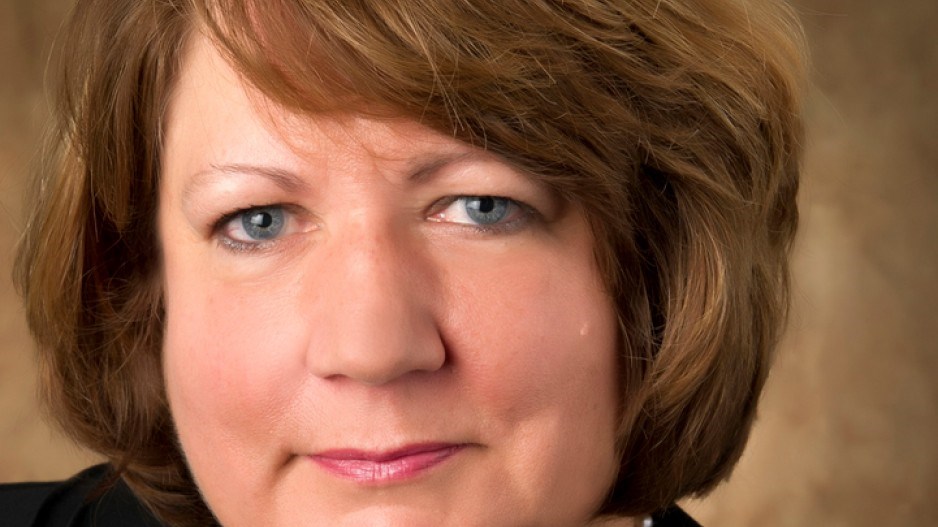A veil of secrecy continues to be lifted around spending at B.C.’s legislature, prompting calls for a hard look at several pieces of legislation keeping taxpayers in the dark about how their money is spent.
Alleged spending on clothes, lavish trips, gifts and other expenses by clerk of the legislature Craig James and sergeant-at-arms Gary Lenz is raising questions about the Legislative Assembly Management Committee (LAMC) Act and who provides actual financial oversight on such spending.
It’s also begging questions from B.C.’s Freedom of Information and Privacy Association (FIPA) as to why the legislature is not subject to public scrutiny through access to information requests under the Freedom of Information and Privacy Protection Act (FOIPPA).
According to FIPA president Mike Larsen, FOIPPA is full of “strategic black holes” where public accountability can be avoided.
The details about the alleged high living on the taxpayers’ dime came out in an explosive report from Speaker Darryl Plecas Monday.
Now, provincial auditor general Carol Bellringer says improvements could be made to the LAMC Act to improve that oversight system.
The financial oversight nominally falls to LAMC chaired by Plecas as speaker. It was to that committee Plecas delivered his report with the damning accusations about James and Lenz.
The committee was created in 1992 to manage legislative assembly affairs, including policies for administration and financial management. Among other things, the committee is responsible for “prudent assembly budgets and expenditures on behalf of all British Columbians.”
However, the LAMC Act does not give it authority over the clerk and the sergeant at arms.
Bellringer said LAMC’s legislation says the committee has jurisdiction to deal with “the appointment, supervision and management of staff of the Legislative Assembly, other than permanent officers (the clerk and sergeant-at-arms) of the Legislative Assembly.”
She said the act is “silent” on who the clerk would report to.
Bellinger said given this, “quite frankly, I don’t know who the clerk is responsible to. You need a lawyer to tell you what the act means.
“It’s interesting there’s an exclusion for those people.”
The speaker chairs LAMC. Other members include government and opposition house leaders, the chairs of the government and opposition caucus and a cabinet minister. Recent practice has been to appoint the government whip in place of a minister.
LAMC has a finance and audit subcommittee — comprised of the Speaker, the government and opposition caucus chairs, and the clerk of the Legislative Assembly — provides systematic oversight of Legislative Assembly “finances and controls, and a deliberate approach to ensuring value for taxpayers’ money.”
That subcommittee has an audit working group, which includes the clerk, the sergeant-at-arms, the executive financial officer and, at times, B.C.’s auditor general. That group provides information to the finance and audit committee.
The legislature does maintain an accountability website. However, the only items there pertain to four legislature officers’ travel expenses for a brief period.
Attempts to contact current and former LAMC members such as Minister of Public Safety and Solicitor General Mike Farnworth or Minister of Social Development and Poverty Reduction Shane Simpson have been unsuccessful.
A more pervasive issue of secrecy involves the finances of the legislature as a whole, dating back to 1996 when elected MLAs chose to exempt the legislature from scrutiny under the Freedom of Information and Protection of Privacy Act (FOIPPA).
The exclusion means no one may request details of what goes on behind the scenes in what the NDP call the “People’s House.”
That includes full details of MLA pensions, transition allowances provided to MLAs leaving office and other issues.
With the passing of FOIPPA, MLAs pulled a veil of secrecy over the financial affairs of the legislature.
Deputy clerk Kate Ryan-Lloyd told Glacier Media in August that MLAs chose not to define the legislature in which elected representatives sit as a public body.
As a result, MLAs themselves during the NDP government of Glen Clark exempted the legislature and its finances from public scrutiny through freedom of information requests that the public and the media use to dig into issues.
And that secrecy, said FIPA president Mike Larsen, needs to end. But, he added, it’s going to take political will by all parties to end it.
“If there’s a strong will within government, it can happen fairly quickly,” he said. “This entire scandal to me just underscores the need not to have a reactive approach to accountability,” Larsen said.

B.C. government graphic shows lines of authority around legislature financial oversight




